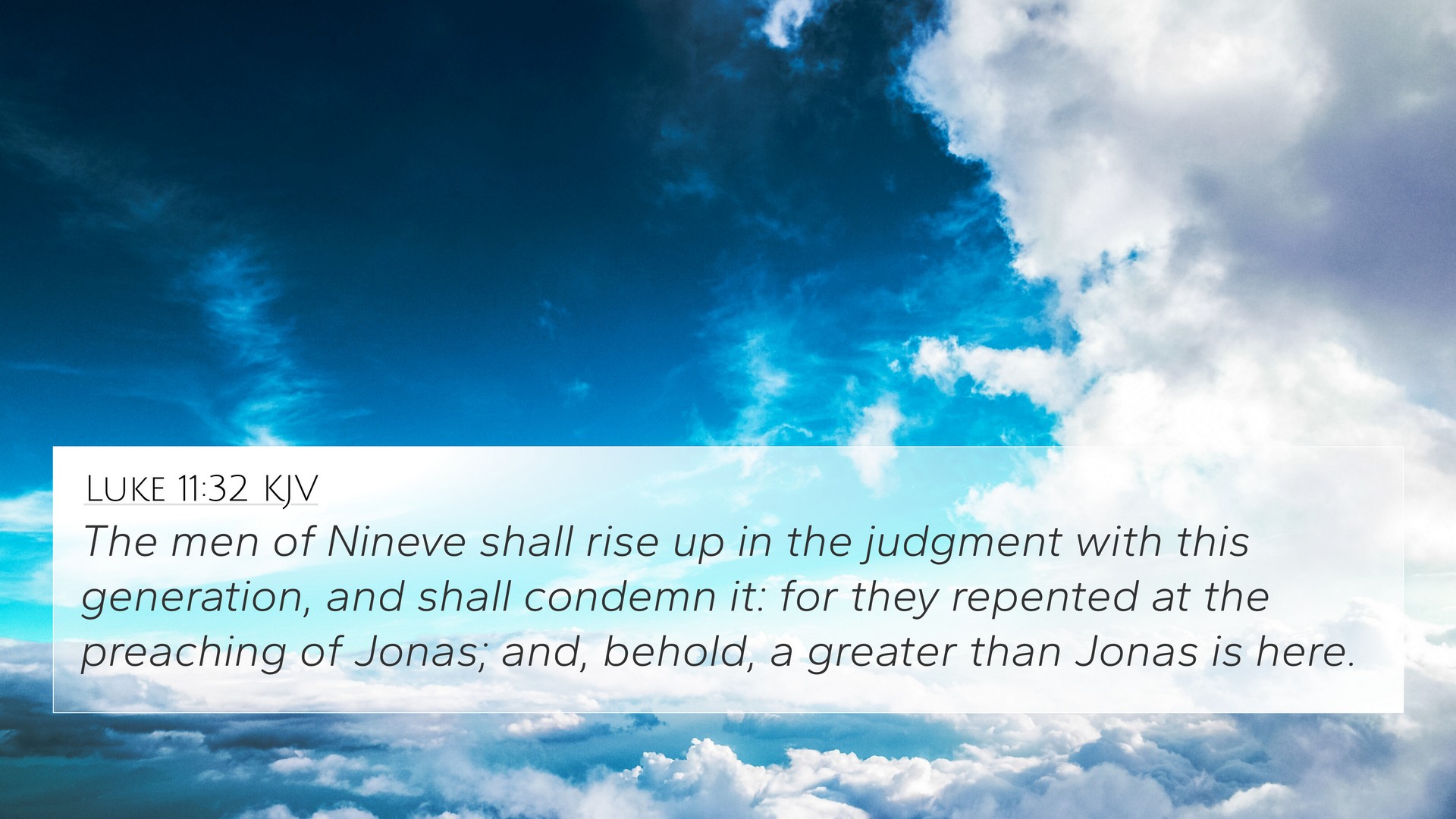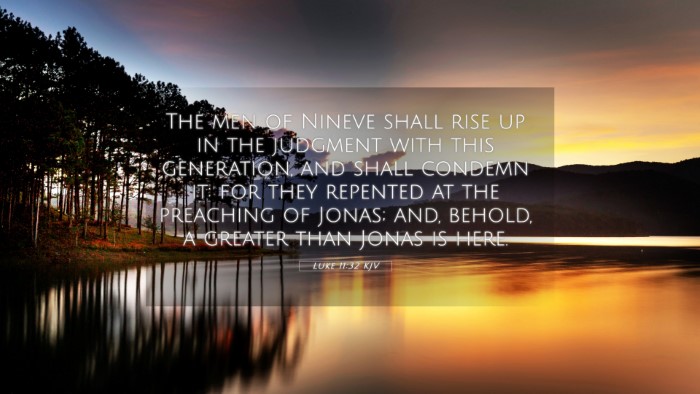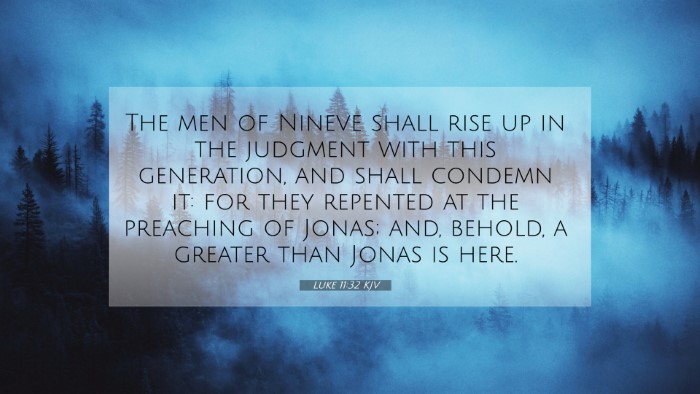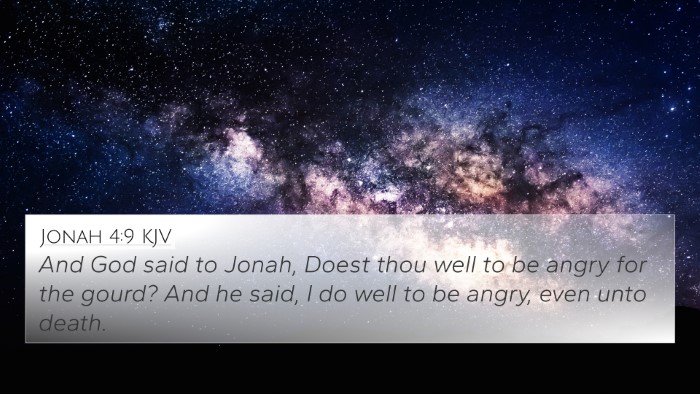Bible Verse Meaning: Luke 11:32
Verse: "The men of Nineveh will rise up at the judgment with this generation and condemn it; for they repented at the preaching of Jonah, and behold, something greater than Jonah is here." (Luke 11:32, ESV)
Summary: In this verse, Jesus draws a comparison between the people of Nineveh, who repented at the preaching of Jonah, and the current generation who have failed to repent despite witnessing His miracles. This verse emphasizes the significance of repentance, faith, and recognizing divine authority.
Insights from Public Domain Commentaries
This combined insights from various commentaries provide a comprehensive understanding of Luke 11:32:
-
Matthew Henry:
Henry emphasizes the contrast between the prompt repentance of the Ninevites after hearing Jonah’s warning, and the indifference of the current generation towards Christ's message. He notes the importance of true repentance and how it should lead to salvation, highlighting that the Ninevites will stand in judgment against those who rejected Jesus. The lesson is a reminder that exposure to the truth demands a response.
-
Albert Barnes:
Barnes explains that Jesus uses the example of the Ninevites, who acted upon a lesser revelation (the preaching of Jonah), to show that those who have received the fullness of God’s revelation (through Christ) have a greater responsibility. He notes that the repentance of Nineveh was sincere and impactful, and highlights the urgency for the current generation to heed this message of repentance.
-
Adam Clarke:
Clarke points out the significance of the phrase "something greater than Jonah is here," referring to Jesus Himself. This implies that Christ’s revelation is more profound than that of Jonah and carries a weightier expectation for those hearing His words. Clarke also discusses the historical context of Nineveh, illustrating the gravity of their repentance in contrast to the spiritual apathy of the Pharisees and others who saw Jesus yet failed to believe.
Bible Verse Cross-References
This verse connects with several other scriptures that reinforce its themes of repentance and accountability:
- Jonah 3:5-10: The account of the Ninevites' repentance when Jonah preached against their wickedness.
- Matthew 12:41: A parallel passage where Jesus references the Ninevites in a similar warning context.
- Luke 13:3: Jesus emphasizes the necessity of repentance for salvation, reflecting the theme in Luke 11:32.
- Romans 2:1-4: Highlights the incredibility of condemning others without recognizing one’s own faults and need for repentance.
- Hebrews 10:31: Discusses the severity of judgment for those who reject God's revelation, aligning with the judgment theme in Luke 11:32.
- James 4:17: Points out that knowing the good one ought to do and failing to do it is a sin, reinforcing the accountability depicted in this verse.
- 2 Peter 3:9: Describes God's patience and desire for repentance, indicative of the opportunities given to the current generation.
Thematic Bible Verse Connections
Luke 11:32 serves as a pivotal point in understanding broader biblical themes:
- Repentance: The necessity of turning from sin as illustrated through the Ninevites’ response.
- Divine Authority: The greater authority of Christ is presented as a call to heed His message more than that of the prophets.
- Judgment: The certainty of divine judgment for failure to respond to God’s call for repentance.
- Faith and Response: The expectation that true faith manifests in actual change and repentance.
Conclusion
In summary, Luke 11:32 serves as a poignant reminder of the critical nature of responding to God's revelation. Through the examination of this verse and its connections, one can glean deeper insights into the themes of repentance and accountability woven throughout the scriptures. The comparative Bible verse analysis and cross-references prompt further reflection on personal faith and the collective responsibility to heed God's Word.







